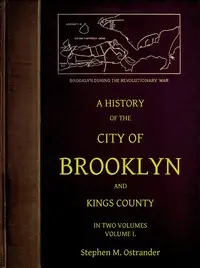"Memoirs of Doctor Burney (Vol. 2 of 3)" by Fanny Burney is a biographical account written in the early 19th century. The work provides an intimate glimpse into the life of Dr. Burney, a renowned musical historian and composer, as recounted by his daughter. The memoir explores both his personal relationships and his professional engagements within the vibrant cultural and musical circles of the time. The opening of this volume presents an array of interactions and anecdotes that illustrate Dr. Burney's life in London, centering around his family and notable acquaintances. One remarkable character featured is Omiah, a South Sea Islander preparing to return home, who shares amusing encounters and cultural exchanges within the Burney household. Additionally, there are early glimpses into Dr. Burney's musical gatherings, highlighting the caliber of guests and the informal yet rich atmosphere of collaboration and appreciation for music, which fundamentally characterizes his life and legacy. The memoir opens a window into a world alive with artistic fervor, showcasing the profound connections between individuals through the universal language of music. (This is an automatically generated summary.)

Memoirs of Doctor Burney (Vol. 2 of 3) Arranged from his own manuscripts, from family papers, and from personal recollections by his daughter, Madame d'Arblay
By Fanny Burney
"Memoirs of Doctor Burney (Vol. 2 of 3)" by Fanny Burney is a biographical account written in the early 19th century. The work provides an intimate gl...
Frances Burney, also known as Fanny Burney and later Madame d'Arblay, was an English satirical novelist, diarist and playwright. In 1786–1790 she held the post of "Keeper of the Robes" to Charlotte of Mecklenburg-Strelitz, George III's queen. In 1793, aged 41, she married a French exile, General Alexandre d'Arblay. After a long writing career and wartime travels that stranded her in France for over a decade, she settled in Bath, England, where she died on 6 January 1840. The first of her four novels, Evelina (1778), was the most successful and remains her most highly regarded, followed by Cecilia (1782). Most of her stage plays were not performed in her lifetime. She wrote a memoir of her father (1832) and many letters and journals that have been gradually published since 1889, forty-nine years after her death.


















